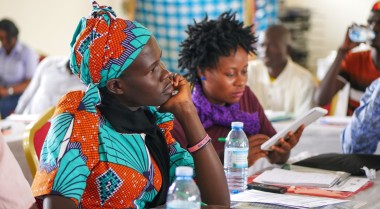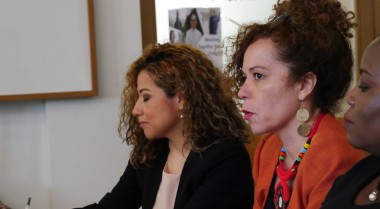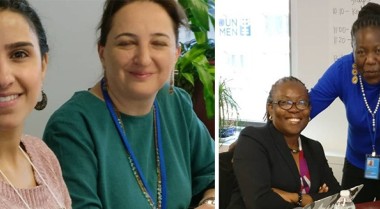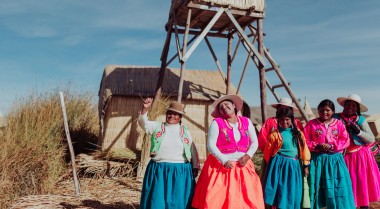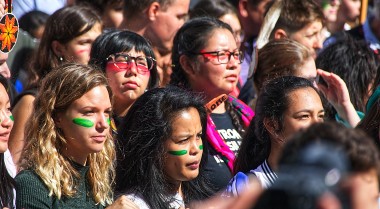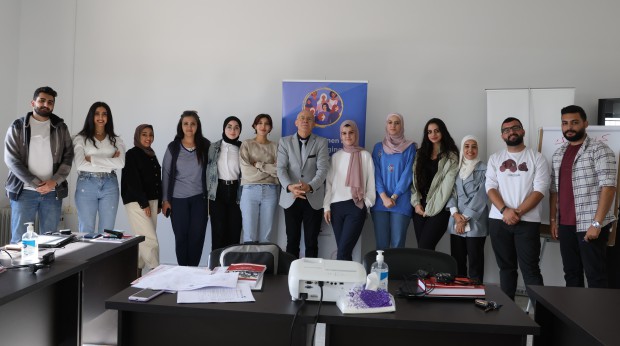
Empowering young Palestinian women in peace negotiations
This 6-month project, running from July 2022 to January 2023 of the Ramallah-based Palestinian Centre for Peace and Democracy (PCPD), aimed to empower young women to meaningfully participate in peace negotiations and reconciliation talks. The project was carried out in partnership with GPPAC and with the financial support of the WPHF Rapid Response Window on Women's Participation in Peace Processes. Activities included gathering data for evidence-based policy engagement with decision-makers, providing training to young women, and launching media initiatives to create positive public awareness of women's engagement in peace negotiations and processes.
Women play an irreplaceable role in building sustainable peace as they often are the first responders to a conflict and bring with them their local knowledge on how to find peaceful solutions. However, women's crucial contributions remain invisible and continue to be drastically underrepresented in formal peacebuilding processes worldwide.
This is also the case in Palestine, where women are directly affected by the Israeli occupation and the internal conflict between Fatah and Hamas (West Bank and Gaza Strip). Yet, they remain excluded from any peace talks and negotiations.
Building on the foundations of UNSCR 1325
Over 20 years ago, the United Nations Security Council adopted the landmark resolution UNSCR 1325 that drew international attention to women in peace and security issues. The resolution addresses two major points: women and girls are disproportionately affected by armed conflict, and women play a crucial role in conflict prevention.
Building on the global commitment of the Security Council Resolution 1325 to ensure that women and girls are more systematically and sustainably integrated into peace and security processes, the PCPD focused on not only empowering young Palestinian women but also young men to participate in peace negotiations (once they are resumed), internal Palestinian reconciliation talks and dialogues (between Fatah and Hamas). Young Palestinian men are also excluded from any peace talks or any serious political work, stripping them of any opportunity to reach decision-making positions. Their allyship for inclusion is particularly important, as both young men and women remain marginalised as political positions are held by the older generation who is unwilling to pass the baton.
Advancing women's involvement: Activities
Throughout the project period, the PCPD supported young women and men by first getting a better overview of the exact number of women participating in peace negotiations and reconciliation talks. This included a revision of publications of the Palestinian negotiating team since 2000 and formulating and presenting clear recommendations on including women in the negotiating team to team and leaders of political parties.
The team then hosted a number of policy dialogues to write actionable policy recommendations. Lastly, capacity-strengthening workshops for young men and women took place place to further engage in policy dialogues with politicians and decision-makers, including on television.
Key findings from youth-led research
In 2022, the PCPD conducted the research titled ''Empowering Palestinian Women's Active Political Participation: Key Findings from Youth-led Research.'' It delves into the nuanced landscape surrounding women's participation in political spheres and peace processes in Occupied Palestine. Through a youth-led approach, the study sheds light on the multifaceted challenges. It offers strategic recommendations for increasing women's participation in decision-making and the peace process between Israel and Palestine, primarily focusing on intra-Palestinian reconciliation efforts. Read the summary report here.
About the Women's Peace and Humanitarian Fund Rapid Response Window
The WPHF Rapid Response Window for Women’s Participation in Peace Processes and the Implementation of Peace Agreements is a funding mechanism of the United Nations Women's Peace and Humanitarian Fund that addresses urgent funding gaps with targeted, short-term support to increase women's participation in peace processes and the implementation of peace agreements.
WPHF is a flexible financing tool supporting quality interventions to enhance the capacity of local women to prevent conflict, respond to crises and emergencies and seize key peacebuilding opportunities.
